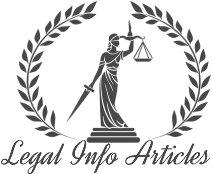An estate planning service in Bel Air MD often sees people utilize POD designations by naming family members as beneficiaries. These designations have several benefits, and can be useful under the right circumstances, but they can create hassles for those who are unaware. Read on for a list of the pros and cons of a POD designation.
Advantages Of POD Accounts
1. It keeps the assets out of probate: The main benefit of POD accounts is the avoidance of probate after a person’s death. Transfers through beneficiary designations can happen quickly after someone passes, and for almost no cost when compared to probate court.
2. They can be changed or revoked: Another benefit to a POD designation is that it can be changed or canceled by an account holder until that person dies or is incapacitated. Moreover, the beneficiary cannot access the assets while the owner is alive. This means that assets are safe from a beneficiary’s creditors and manipulative practices.
Problems For Minor POD Beneficiaries
Beneficiary designations are not appropriate when minors are a part of the picture. Single parents often list children as beneficiaries on POD accounts, and couples often list them as contingency beneficiaries. This is natural, but the cost of getting the funds could be substantial. Banks don’t release assets to minors; they require evidence or a court order to release the money to an adult guardian. Guardianships end when the child reaches the age of 18, meaning that they will have unlimited access to funds at a time when hormone swings can call their maturity and decision-making skills into question. Visit their website for further details.
POD Account Access For Administrative Purposes
A beneficiary designation is not an acceptable substitute for a trust in cases involving adult beneficiaries. This approach is better than costly probate proceedings, but it’s not prudent to maintain POD accounts when a trust exists. Trusts need maintenance funds, just as cars need oil to run smoothly. To avoid such issues, it is best to pass some accounts to the trust so there’s sufficient funding for administrative expenses.
Parents and others should be wary of naming minors as beneficiaries on asset accounts, and they should always ensure that living trusts have enough money to pay administrative fees. For additional help and advice on estate planning and probate matters, clients should call Michael S. Birch Attorney at Law, who runs an estate planning service in Bel Air MD.


